
According to Serbian Economist, real estate prices in Serbia are market-driven and not “inflated,” said Ervin Pashanovich, a member of the board of the Association of Real Estate Agents of the Serbian Chamber of Commerce and Industry (Privredna komora Srbije).
According to him, the real estate market in the country remains “free” and without interference, and price levels are confirmed by demand. He noted that the average price per square meter of housing in Belgrade is about €2,400, with attention often focused on the most expensive projects, although there are different price levels on the market.
Pasanovic also pointed out that the majority of purchases are made by citizens seeking to resolve their housing issues, rather than investors, since, in his estimation, rental yields imply a long payback period: an apartment costing €100-150,000 can be rented for around €600 per month, which corresponds to a 24-30 year return on investment.
He added that the share of buyers purchasing housing with loans has reached a record 36%, and the share of foreigners among real estate buyers in Serbia is about 2%.
Pasanovic also commented on the application of the law on simplified accounting and registration of property rights, noting that the possible entry into the market of some previously unaccounted properties, in his opinion, will not lead to a noticeable decrease in prices, since a significant part of them are not located in central areas.
According to data from the Republic Geodetic Authority of Serbia (RGZ), in the third quarter of 2025, the average price of apartments on the secondary market in Belgrade was €2,691 per square meter, and in new buildings, €2,598 per square meter.
The RGZ reported that the total volume of the Serbian real estate market in the third quarter of 2025 was estimated at €1.8 billion with 30,511 sales contracts, and apartment transactions accounted for about 60% of the total market value (€1.1 billion).
https://t.me/relocationrs/2087
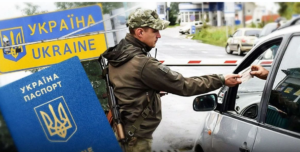
Passenger traffic across the Ukrainian border in the first week after New Year’s, from January 3 to 9, jumped by about 27% to 598,000, according to data from the State Border Service. According to the data, the number of border crossings for departure increased to 258,000 (for comparison, data for January 7 was not taken into account due to the lack of statistics from the State Border Service for December 30) from 223,000 a week earlier, while the increase for entry was even more significant – to 271,000 from 184,000.
The number of vehicles passing through checkpoints this week also increased to 95,000 from 77,000 a week earlier, and the flow of vehicles carrying humanitarian cargo increased to 342 from 268.
According to the State Border Service, as of 6:00 p.m. on Saturday, the largest number of cars and buses waiting to leave Ukraine at the Krakovets checkpoint were 45 and 8, respectively. The queue at the Ustyluh checkpoint consisted of 25 vehicles, at the Ugrinov checkpoint – 15 vehicles, and at the Shehyni checkpoint – 12 buses.
Twenty-five cars and seven buses were waiting to cross the border with Slovakia at the Uzhgorod checkpoint, and five cars were waiting at the Maly Berezny checkpoint.
At the border with Hungary, there was only a small queue of five cars at the Tisa checkpoint, while unusually long queues were recorded at the Porubne and Dyakovo checkpoints on the border with Romania – 50 and 35 cars, respectively, as well as at the Mamalyga checkpoint on the border with Moldova – 35 cars.
The total number of border crossings this week is the same as last year. At that time, 302,000 people left Ukraine and 292,000 entered the country over the same seven days, while this week the figures were 295,000 and 303,000, respectively, although the flow of cars was higher last year – 117,000 versus 109,000, which is probably due to weather conditions.
Last year, a 16.9% increase in passenger traffic was recorded during this week, but the following week saw a 13.3% decrease.
As reported, from May 10, 2022, the outflow of refugees from Ukraine, which began with the start of the war, was replaced by an influx that continued until September 23, 2022, and amounted to 409,000 people. However, since the end of September, possibly influenced by news of mobilization in Russia and “pseudo-referendums” in the occupied territories, followed by massive shelling of energy infrastructure, the number of people leaving exceeded the number of people entering. In total, from the end of September 2022 to the first anniversary of the full-scale war, it reached 223,000 people.
During the second year of full-scale war, the number of border crossings to leave Ukraine exceeded the number of crossings to enter by 25,000, during the third year by 187,000, and since the beginning of the fourth year by 195,000, according to the State Border Service.
As Sergei Sobolev, then Deputy Minister of Economy, noted in early March 2023, the return of every 100,000 Ukrainians home results in a 0.5% increase in GDP.
In its July inflation report, the National Bank worsened its migration forecast: while in April it expected a net inflow of 0.2 million people to Ukraine in 2026, it now forecasts a net outflow of 0.2 million, which corresponds to the estimate of the net outflow this year. “Net return will only begin in 2027 (about 0.1 million people, compared to 0.5 million in the previous forecast),” the NBU added, confirming this forecast at the end of October. In absolute terms, the National Bank estimates the number of migrants currently remaining abroad at about 5.8 million.
According to updated UNHCR data, the number of Ukrainian refugees in Europe as of December 11, 2025, was estimated at 5.311 million (5.331 million as of November 14), and 5.860 million (5.850 million) worldwide.
In Ukraine itself, according to the latest UN data for July this year, there were 3.340 million internally displaced persons (IDPs), compared to 3.757 million in April.
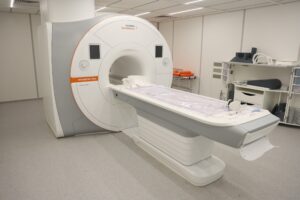
In 2025, Ukrainian hospitals received 16 magnetic resonance imaging (MRI) machines and six linear accelerators, according to the Ministry of Health.
The Ministry of Health also reports that, with the support of donors to the UNITED24 platform, 30 armored vehicles for evacuating the wounded, seven ambulances, 11 digital X-ray diagnostic systems, and 50 incubators for newborns were purchased.
In addition, last year hospitals received highly specialized equipment for resuscitation, hearing aids, dialysis, and life support for patients, including systems for lung ventilation, blood circulation support, blood and water purification, and other critical equipment.
For the first time, equipment was purchased to establish nuclear medicine centers in Kyiv and Lviv. Also in 2025, 20 1.5 Tesla MRI machines, 26 digital X-ray systems were purchased within the Ukraine Facility, as well as nine items of important equipment for the Heart Institute of the Ministry of Health of Ukraine.
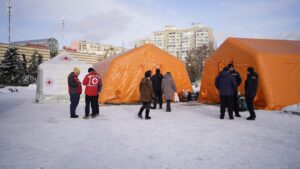
The Ukrainian Red Cross (URC) has set up mobile heating points to support the residents of Kyiv.
“Volunteers from the Ukrainian Red Cross rapid response team, together with rescuers from the State Emergency Service of Ukraine, continue to support Kyiv residents amid damage to a significant part of the energy infrastructure, which has led to a lack of electricity and heat in a large number of homes… Through joint efforts, mobile heating points have been set up where Kyiv residents can warm up, recharge their mobile devices, and receive the necessary support until the stable operation of the power system is restored,” the UCRC reported on Facebook on Sunday.
If necessary, people can also seek initial psychological assistance at the heating points.
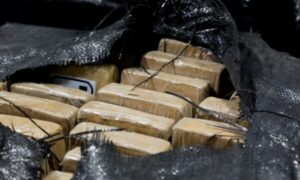
According to Serbian Economist, organized crime groups from the Western Balkans have ties in Venezuela and are involved in investigations related to cocaine smuggling, Radio Free Europe (RFE) reports.
According to RSE, networks from the Balkans are considered by international organizations, including Europol and Interpol, to be key players in the supply of cocaine from Latin America to Europe, with Venezuela seen as one of the links in this logistics chain.
Sasha Djordjevic, an expert at the Global Initiative against Transnational Organized Crime (GI-TOC), told RSE that Venezuela is important for cocaine flows as a “strategic outlet” to the Atlantic, although it is not the only and main point of support in the region for Balkan groups.
RSE notes that interest in Venezuela’s role in drug trafficking has intensified following the early January arrest of Venezuelan leader Nicolas Maduro, who has been charged in the US and pleaded not guilty in a New York court on January 5.
As one example, RSE cites the case of the detention of the Aressa off the coast of Aruba in February 2020, when, according to the publication, about five tons of cocaine were seized and 11 Montenegrin crew members were detained. In March 2021, an Aruban court sentenced them to prison terms ranging from nine to 15 years. In addition, according to RSE, Europol linked Serbian citizen Miroslav Starčević, who was detained in May 2023 along with other suspects, to this case, and the proceedings in Serbia are currently under judicial review, according to the publication.
RSE also notes that Europol reported no direct cooperation with Venezuela, so information about the possible involvement of Balkan groups is obtained indirectly – through the law enforcement agencies of the countries in the region, while the Interior Ministries of Serbia and Montenegro, according to RSE, did not respond to requests prior to the publication of the material.
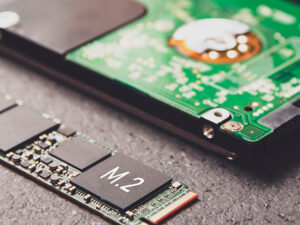
Expectations of rising storage prices are growing in the memory market: TrendForce predicts that contract prices for NAND Flash will increase by 33-38% in Q1 2026 compared to the previous quarter amid shortages and a shift in capacity toward server segment demand.
Separately, for the corporate segment, Nomura Securities (according to industry media reports) admits that SanDisk may raise prices for high-capacity 3D NAND for enterprise SSDs by more than 100% quarter-on-quarter in March 2026, which effectively means a doubling. However, a direct transfer of this dynamic to retail SSDs for PCs is not guaranteed — the segments are linked by production chains but differ in terms of contract structure and retail inventories.
There are no confirmed open sources confirming statements that hard drives will become “virtually unavailable” by March 2026. However, the HDD market is also becoming more tense: there have been reports of a rise in HDD contract prices of approximately 4% q/q in Q4 2025 and expectations of further pressure due to demand from data centers.
In Europe, the premium Samsung 990 Pro 1TB NVMe SSD is listed on price aggregators at around €153.99 in January 2026, while the mass-market WD Blue SN5000 1TB is listed at €119.99. If the “x2” scenario partially reaches the consumer segment, these levels could shift to around €240-320 per 1TB, depending on the model and supply channels.
In the US, the Samsung 990 PRO 1TB was priced at around $139.99 at major retailers, and the 8TB Seagate IronWolf HDD was priced at $199.99 on Newegg (higher at some retailers). With memory costs doubling and a persistent shortage, the upper price levels may become the “new normal,” but the speed of transfer to retail will depend on inventory levels and promotional activity.
In China, according to public displays and promotional materials, the WD Blue SN580 1TB was priced at around 405 yuan, and the Seagate IronWolf Pro 8TB was priced at around 1975 yuan at the end of December 2025. As the shortage intensifies, a growth scenario of tens of percent seems more realistic as a “base case,” while “x2” is more of a risk for individual corporate positions and periods of peak demand.